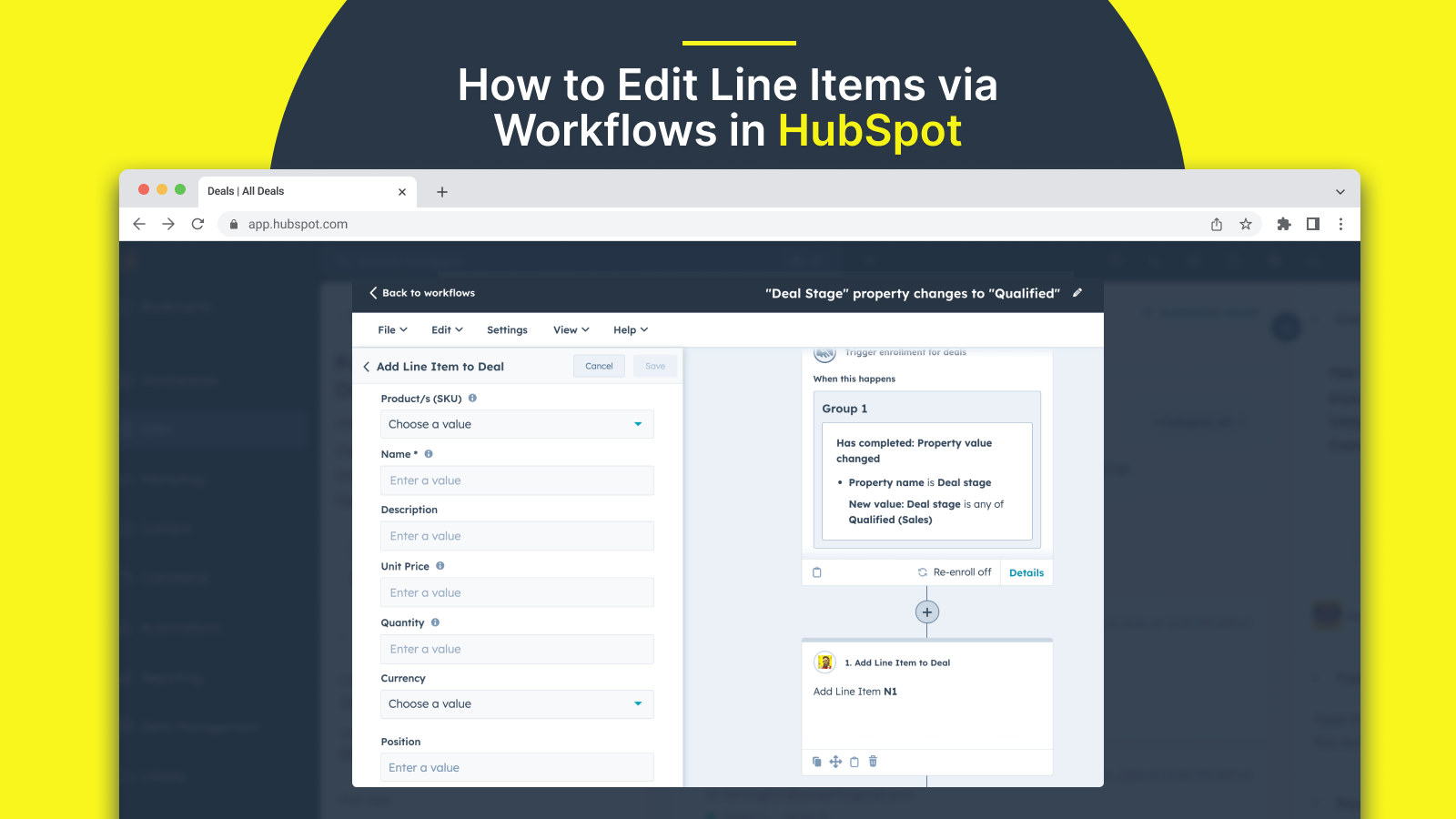Introduction
In an era where connectivity transcends borders and communication evolves at the speed of a click, the influence of social media reverberates in every aspect of our lives. From fostering personal connections to revolutionizing business landscapes, social media has become the cornerstone of modern interactions. In this dynamic digital sphere, the integration of social media stands as a linchpin in effective Customer Relationship Management (CRM). Its omnipresence and transformative impact redefine how businesses engage with their audience, presenting an unprecedented opportunity for seamless, multi-platform connections.
The significance of integrating social media into CRM strategies cannot be overstated. It's no longer merely an option but a strategic imperative for businesses aiming to forge lasting relationships with their customers across diverse platforms. This amalgamation doesn't just signify a technological convergence; it symbolizes the evolution of customer-centric approaches, empowering enterprises to resonate with their audience on a more personal and profound level.
In this article, we explore the profound impact of social media integration in CRM, unraveling its potential to revolutionize customer connections and elevate business success. From leveraging various platforms to enhancing engagement and harnessing invaluable insights, the integration of social media into CRM emerges as a pivotal strategy for businesses navigating the complex landscape of modern consumer interactions.
Section 1: Understanding Social Media Integration in CRM
 Defining Social Media Integration in CRM
Defining Social Media Integration in CRM
Social media integration in CRM refers to the strategic incorporation of social media platforms within Customer Relationship Management systems. It involves the seamless assimilation of social media data, interactions, and insights into CRM processes. This integration enables businesses to capture, analyze, and utilize customer data from various social media channels to enhance their understanding of customer behavior, preferences, and sentiments. The importance lies in creating a unified view of the customer across multiple touchpoints, fostering more personalized interactions and informed decision-making.
Benefits of Integration
a. Enhanced Customer Engagement: Social media integration enables businesses to interact with customers in real-time, fostering meaningful engagements and conversations. It facilitates immediate responses to queries, complaints, and feedback, thereby enhancing customer satisfaction and loyalty.
b. Data Insights and Analytics: Integration with social media platforms provides access to a wealth of customer data, allowing businesses to gain deeper insights into consumer behavior, preferences, and trends. This data can be leveraged to tailor marketing strategies, product development, and service offerings more effectively.
c. Brand Visibility and Reach: Integrating social media within CRM amplifies brand visibility across diverse platforms, extending the reach to a wider audience. This visibility fosters brand advocacy through user-generated content and referrals.
Challenges and Solutions:
- Privacy Concerns: The collection of customer data from social media platforms raises privacy concerns. To address this, businesses should prioritize transparency in data collection practices, seek explicit consent, and comply with relevant data protection regulations. Implementing robust data encryption and access controls also ensures data security.
- Data Security: Protecting customer data is crucial. Employing secure data storage methods, encryption, regular audits, and adherence to cybersecurity best practices are essential to mitigate data breaches and security risks associated with social media integration.
- Integration Complexity: Integrating diverse social media platforms into CRM systems can be complex. Utilizing specialized CRM tools, APIs, and third-party integration services streamlines the integration process, ensuring seamless data flow and consistency across platforms.
By understanding the significance, reaping the benefits, and proactively addressing challenges, businesses can harness the full potential of social media integration in CRM, fostering stronger customer relationships and sustainable growth.
Section 2: Leveraging Social Media Channels for CRM
 Platform-specific Strategies
Platform-specific Strategies
Social media platforms offer distinct advantages and engagement styles. Tailoring CRM strategies to fit each platform can significantly enhance customer relationships:
a. Facebook:
- Leverage Facebook's robust advertising tools to target specific demographics.
- Use Messenger for personalized customer interactions and support.
b. Twitter:
- Utilize Twitter for real-time customer service and quick engagement.
- Create polls and hashtags to encourage interaction and gather feedback.
c. Instagram:
- Leverage visual Instagram's storytelling through captivating images and videos.
- Use Stories and Reels for behind-the-scenes content and interactive polls.
d. LinkedIn:
- Focus on professional content and networking for B2B relationships.
- Utilize LinkedIn Groups for discussions and industry-specific engagements.
Case Studies
-
Nike's Engagement through Instagram:
Nike has mastered the art of community-building on Instagram by leveraging the platform's visual-centric nature. Through a strategic blend of user-generated content, influencer collaborations, and interactive posts, Nike has established itself as more than just a sports brand. They've created a dynamic community that goes beyond selling products. Encouraging customers to share their experiences with Nike merchandise using hashtags has led to a flood of user-generated content, fostering a sense of belonging among its followers. Collaborations with influencers and athletes have amplified brand visibility and authenticity, tapping into their audiences for broader reach. Interactive posts, including polls, Q&A sessions, and behind-the-scenes glimpses, invite active engagement, further solidifying Nike's position as a lifestyle brand, not just a sportswear company.
-
Zappos' Customer Service on Twitter:
Zappos has set a high standard for customer service on Twitter by swiftly addressing customer queries and concerns, thereby creating exceptional brand experiences. Known for its customer-centric approach, Zappos utilizes Twitter as a platform for immediate assistance, guidance, and issue resolution. Their responsiveness to customer inquiries, whether simple product queries or complex support issues, is unparalleled. By ensuring a human touch in their responses, along with a dash of humor and empathy, Zappos creates positive interactions that resonate with customers. They consistently go the extra mile, showcasing their commitment to customer satisfaction. This dedication to promptly addressing customer needs on Twitter has not only solidified their brand reputation but has also resulted in loyal customers who advocate for the brand.
-
Salesforce's LinkedIn Strategy:
Salesforce has strategically leveraged LinkedIn to establish thought leadership, foster networking, and engage with businesses in a professional setting. By curating and sharing insightful content that addresses industry challenges, emerging trends, and best practices, Salesforce positions itself as an authority in the CRM and business software domain. Their thought-provoking articles, whitepapers, and case studies resonate well with LinkedIn's professional audience, establishing Salesforce as a go-to source for valuable industry insights. Additionally, Salesforce actively engages with businesses and professionals through thought-provoking discussions and meaningful interactions in LinkedIn Groups and forums. This engagement not only strengthens their brand but also facilitates meaningful connections and partnerships within the business community. Salesforce's LinkedIn strategy is a testament to how a B2B company can effectively utilize the platform for thought leadership and networking purposes.
Best Practices
a. Consistent Brand Voice:
Maintaining a consistent brand voice across all social media platforms is crucial for reinforcing brand identity and fostering customer recognition. Whether it's Facebook, Twitter, Instagram, or LinkedIn, a cohesive tone, language style, and messaging help create a unified brand persona. Consistency in communication strengthens brand recall and builds trust among the audience.
b. Customer-Centric Content:
Tailoring content to resonate with customer needs, pain points, and interests across various social media channels is key. Understanding the specific preferences and behaviors of your target audience on each platform allows for the creation of content that adds value, solves problems, or entertains. Customer-centric content increases engagement and encourages positive interactions.
c. Real-time Engagement:
Swift responses to customer inquiries, comments, and messages are imperative for maintaining a high level of engagement and satisfaction. Timely interactions demonstrate attentiveness and care towards customers, fostering a positive perception of the brand. Quick and meaningful responses create a sense of being valued, which significantly contributes to customer loyalty.
d. Data-driven Decision Making:
Leveraging analytics tools to track engagement metrics, customer behavior, and social media insights is essential. Analyzing this data provides valuable insights into the effectiveness of CRM strategies. Data-driven decisions enable businesses to adapt and optimize their approaches, ensuring they align with customer preferences and trends.
e. Automation with Personalization:
Implementing automation for routine tasks streamlines processes, but it's crucial to maintain a personalized touch. Automated responses or workflows should be tailored to reflect the brand's personality and address customer needs effectively. Balancing automation with personalization ensures efficiency without compromising on the human element, thereby enhancing customer experiences.
Section 3: Impact on Customer Engagement and Experience
 Social media integration within Customer Relationship Management (CRM) systems has a profound impact on enhancing customer interaction and experience, leading to stronger and more meaningful relationships between businesses and their customers.
Social media integration within Customer Relationship Management (CRM) systems has a profound impact on enhancing customer interaction and experience, leading to stronger and more meaningful relationships between businesses and their customers.
Enriched Customer Interaction:
Social media integration amplifies customer interaction by providing a platform for real-time engagement. It facilitates immediate and personalized communication, enabling businesses to connect with customers on a more personal level. Whether it's responding to inquiries, addressing concerns, or acknowledging positive feedback, the seamless integration of social media into CRM systems fosters a sense of accessibility and responsiveness. This proactive engagement builds trust and loyalty, strengthening the relationship between the brand and its customers.
Personalized Communication and Tailored Services:
CRM integrated with social media empowers businesses to deliver personalized communication and tailored services to their customers. By harnessing data obtained from social media interactions, businesses gain deeper insights into customer preferences, behaviors, and interests. This information allows for the customization of marketing messages, product recommendations, and service offerings. Tailoring services and communication based on individual preferences not only enhances the customer experience but also increases the likelihood of customer satisfaction and retention.
Gathering Valuable Customer Feedback and Insights:
Social media integration in CRM serves as a valuable tool for gathering customer feedback and insights. It enables businesses to listen to customer conversations, monitor sentiment, and collect feedback in real-time. Analyzing this feedback provides valuable insights into customer preferences, pain points, and expectations. Moreover, social media platforms serve as a goldmine of qualitative and quantitative data, allowing businesses to understand market trends, sentiment shifts, and emerging customer needs. Utilizing this information for continuous improvement of products, services, and customer experiences is instrumental in staying competitive and meeting evolving customer demands.
Section 4: Data Utilization and Analytics in Social CRM
 Data Gathering and Analysis:
Data Gathering and Analysis:
Integrating social media data into CRM systems serves as a rich source of valuable customer data. By aggregating information from various social media platforms, businesses can gather a comprehensive view of customer interactions, preferences, sentiments, and behaviors. This data includes but is not limited to customer comments, likes, shares, click-through rates, and demographic information. Combining this social media data with existing CRM data provides businesses with a holistic understanding of their customers, enabling more informed decision-making and targeted interactions.
Predictive Analytics:
The integration of social media data into CRM systems facilitates predictive analysis to anticipate future customer behaviors and preferences. By leveraging advanced analytics and machine learning algorithms, businesses can identify patterns and trends within social media interactions. Analyzing historical data helps in predicting potential future customer behaviors, such as purchase intentions, product preferences, or engagement patterns. Predictive analytics empower businesses to forecast market trends, anticipate customer needs, and proactively tailor offerings and strategies to meet those needs, thereby gaining a competitive edge.
Optimizing Marketing Strategies:
Businesses can use the integrated social media data to refine marketing strategies and target customers effectively. Understanding customer preferences and behaviors gleaned from social media enables the creation of highly targeted and personalized marketing campaigns. Segmentation based on demographics, interests, or past interactions allows for tailored messaging and precise targeting. Moreover, analyzing social media engagement metrics helps in evaluating the effectiveness of marketing campaigns in real-time. Adjusting strategies based on these insights optimizes marketing spend, increases ROI, and ensures that marketing efforts resonate with the intended audience.
Section 5: Ethical Considerations and Future Trends
 Ethical Use of Data:
Ethical Use of Data:
Collecting customer data through social media integration raises significant ethical considerations, primarily concerning privacy, consent, and data usage. Businesses must prioritize transparency regarding the collection and utilization of customer data. Respecting user privacy by obtaining explicit consent, providing clear opt-out options, and adhering to data protection regulations (such as GDPR or CCPA) is imperative. Ensuring data security through encryption, secure storage, and limited access helps in safeguarding sensitive customer information. Additionally, businesses should refrain from intrusive data collection practices and prioritize the ethical handling of customer data to build and maintain trust with their audience.
Emerging Trends:
a. AI Integration: The integration of Artificial Intelligence (AI) within social media CRM is a prominent emerging trend. AI-driven analytics can process vast amounts of social media data to derive actionable insights, automate customer interactions, and personalize experiences at scale.
b. Chatbots and Virtual Assistants: Chatbots and virtual assistants powered by AI are revolutionizing customer service on social media platforms. They offer immediate responses, personalized recommendations, and assistance, enhancing customer engagement and satisfaction.
c. VR/AR Integration: Virtual Reality (VR) and Augmented Reality (AR) are poised to transform social media interactions. Integration of VR/AR within CRM systems can enable immersive customer experiences, allowing businesses to showcase products, offer virtual tours, and engage customers in innovative ways.
The Future Landscape:
The integration of social media and CRM is likely to evolve in several ways, profoundly impacting businesses and consumers:
a. Deeper Personalization: Integration advancements will enable even deeper personalization, where businesses can offer hyper-personalized experiences tailored to individual preferences and behaviors.
b. Enhanced Customer Insights: Continuous advancements in data analytics will provide businesses with more sophisticated customer insights, allowing for more accurate predictive modeling and behavior forecasting.
c. Omni-Channel Integration: Future integration might focus on seamless omni-channel experiences, where customer interactions across various platforms are unified for a cohesive and consistent experience.
d. Ethical and Transparent Data Practices: Ethical considerations will become increasingly important, leading to stricter regulations and a heightened focus on transparent data practices to maintain customer trust.
e. Integration of New Technologies: The integration of emerging technologies like blockchain for enhanced data security or the integration of social commerce into CRM systems for streamlined purchasing experiences are likely future trends.
[Read more: Top 15 CRM Conferences in 2024]
Final Thoughts:
In an era where connectivity knows no bounds and digital interactions shape the very essence of business-consumer relationships, the integration of social media into CRM strategies stands as an indispensable asset for businesses striving to thrive in a digitally connected world.
The landscape of customer relationships has evolved, transcending traditional boundaries and embracing the dynamic realm of social media. The necessity for businesses to adapt and innovate their CRM strategies by integrating social media cannot be overstated. It is no longer merely an option but a fundamental requirement for sustained success and relevance in today's digital ecosystem.
The integration of social media amplifies the essence of customer engagement, enabling businesses to forge stronger connections and deeper interactions across diverse platforms. It's a bridge that connects brands and customers, fostering personalized experiences, real-time interactions, and a deeper understanding of customer needs and preferences.
As businesses navigate this digitally connected landscape, the integration of social media into CRM becomes not just a competitive advantage but a core component of future-proof strategies. It's the conduit that empowers businesses to glean actionable insights, predict future trends, refine marketing approaches, and continually improve customer experiences.
Adaptation and innovation in CRM strategies through social media integration pave the way for businesses to resonate authentically with their audience, drive customer loyalty, and stay ahead in an ever-evolving market. By embracing this integration, businesses unlock the potential for sustained growth, customer-centricity, and relevance in a world where connections matter more than ever before.
In conclusion, the fusion of social media within CRM isn't just a technological convergence; it's a transformative force shaping the future of customer relationships. Businesses that embrace this integration are not just connecting with customers on every platform; they're building bridges to enduring success in a digitally interconnected world.






.png)